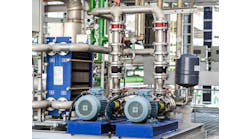Believe it or not I’m tired of the bar scene. I’ve found that after a certain age I just don’t find social satisfaction paying for overpriced drinks and listening to music that isn’t my top choice. There are very few reasons I will actually say yes to going to a bar.
Enter Science Cafés -- events that take place in casual settings such as pubs and coffeehouses -- that feature a conversation with a scientist about a particular topic. According to the Science Cafés website, they are not exclusive club meetings for scientists and science majors. Instead, successful cafés foster an informal atmosphere where all participants feel encouraged to participate. There are no long lectures with a passive audience listening to an expert. Rather, they are dynamic, two-way interactions between a scientist and the public. In this way, the public feels empowered to learn, and the scientist speaker gains valuable perspective on his or her own work. In fact, some of the scientists who have participated in the talks have said they enjoy educating the public about the scientific research they are involved in and it’s a great way to represent their institution. Another perk: you can practice your communication skills in a relaxed setting.
An article in The Sacarmento Bee featured a local California café called Sac Science Distilled. According to Bobby Castagna, one of the collaborators for the local café, “Science lately has seemed hard to understand; it’s very unapproachable. And there’s a lot of misinformation out there regarding vaccinations, GMOs (genetically modified organisms). You name it, it’s probably out there.”
Science cafés help keep people informed, but they’re also great practice for the scientists, says Rita Mukherjee Hoffstadt, deputy director of Powerhouse Science Center, one of the supporters of Sac Science Distilled.
“For people who don’t know anything about that day-to-day work and don’t have those vocabularies, how can we create easier access points?” Hoffstadt says. “It’s happening in a place where everybody’s guard is down a little and everyone is willing to relax and enjoy and you can have a dialogue together, which is a lot harder to do in an academic setting.”
You can search for a café near you via the Science Cafés website. And if you don’t see one in your area, you can start one with the help of some pointers from the Science Cafés 101 section. The short video below is the first installment of the five-part YouTube series on how to get started.

